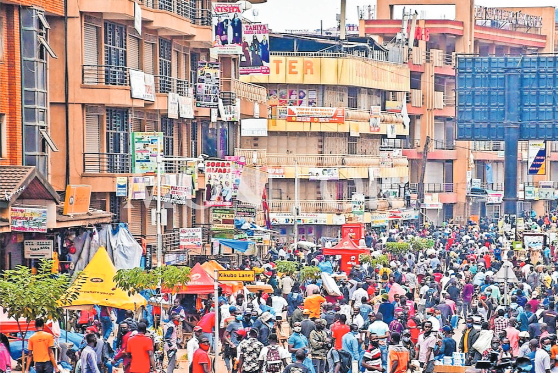Prime
Becoming a refugee in Uganda

Mr Julius Mucunguzi
What you need to know:
- The refugee response in Uganda is supported heavily by the UNHCR, which provides the bulk of the funding in the spirit of international solidarity and burden sharing.
Many people often ask how one gets refugee status in Uganda. Let me give you a few highlights of that process based on a recent visit I made to to Nakivale Refugee Settlement in Isingiro District.
When people flee their home countries in search of safety and security and arrive say in Nakivale, they are first recieved at a facility called a reception centre, where their biodata details are taken and profiled.
Thereafter, a team consisting officials from the Office of the Prime Minister, Internal Affairs, United Nations High Commissioner for Refugees (UNHCR) and other agencies meet the refugees to determine their eligibility. Before that determination is made, the person is known as an asylum seeker.
Once one convinces the committee about the reasons for their escape to Uganda, they are granted refugee status, registered and accepted into a settlement. Please note that in Uganda, refugees do not live in camps.
In the settlement, they are allocated some land to start a life, grow food. They are also given some start- up package of a few kilogrammes of beans, posho, cooking oil, tarpaulin, basins, jerrycans and other essentials.
Please note also that refugees do not own the land given to them. They only have user rights and return it to government when they leave and go back to their countries. Also, in some areas such as West Nile, local communities avail land to settle refugees.
Refugees in Uganda are allowed freedom of movement and to seek and work anywhere. They have other freedoms, such as to worship God, gods or no god.
The only right they do not have is to participate and vote in our elections. The idea is to treat the refugee as humanely as possible, because by the time someone flees their home country, they are already traumatised.
In Uganda, refugees share the same services like schools, water, health facilities, with the local communities that host them. Children go to the same schools, men go to the same drinking places, women use the same markets and maternity facilities. And they get along well, generally.
When people say Ugandans are hospitable and generous, one way to confirm this is to see and look back at the example of how people in Isingiro District have lived with refugees since the 1950s, when the first wave of Rwandans fled their country and came here.
Since then, Nakivale Settlement has hosted refugees from Eritrea, Ethiopia, Burundi, DRC, Tanzania, and many other places.
Today, about 13 districts in the country host refugees, with the total population above 1.4 million.
But no community is homogeneous. You will also find some people who have negative attitudes towards refugees. They claim that refugees are treated better than them.
Some refugees may also behave badly towards their hosts. But on the whole, it is a good thing to be a good samaritan.
Because of the pressure exerted on the refugee host communities across the country, and to ease their burden, government designed a special programme called the Development Response to Displacement Impacts Project (DRDIP).
With funding from the World Bank, the project is building schools, health centres and providing funds to enable locals undertake farming, business and other livelihoods projects.
It is also supporting environment protection activities like tree planting, making of briquettes, and provision of energy saving stoves. In implementing those projects, DRDIP uses local labour force and contractors.
The refugee response in Uganda is supported heavily by the UNHCR, which provides the bulk of the funding in the spirit of international solidarity and burden sharing. There are also non- governmental organisations that provide specialised social services through the Office of the Prime Minister.
Mr Julius Mucunguzi is advisor and head of communications, Office of the Prime Minister.
[email protected]




